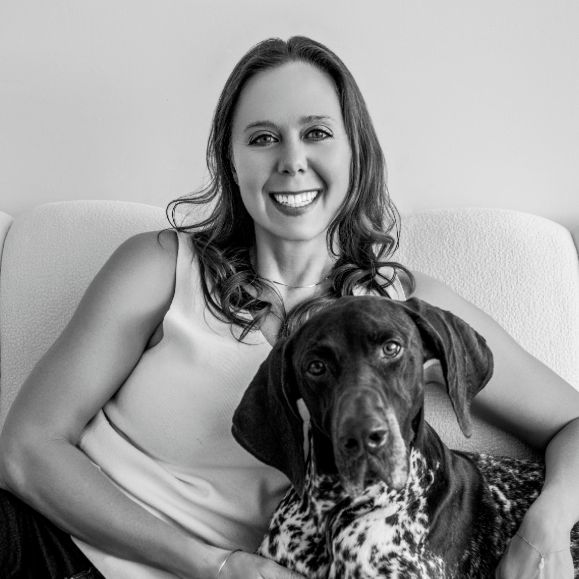How do I know if I have anorexia?
Anorexia nervosa is more than a desire to lose weight—it’s a serious mental health condition that can significantly impact physical and emotional well-being. If you're preoccupied with food, body size, or avoiding weight gain to the point that it disrupts your daily life, you may be experiencing anorexia.
You might not look underweight or “sick enough” in your own eyes, but eating disorders are not defined by appearance. Emotional distress, rigid food rules, and obsessive thoughts about weight can be just as harmful, regardless of size.
Signs to watch for:
- Extreme restriction of food intake
- Intense fear of gaining weight or becoming "fat"
- Distorted body image or denial about low weight
- Excessive exercise or compulsive movement
- Obsessive calorie tracking or label reading
- Isolation or anxiety around meals
If any of these feel familiar, talking to an anorexia therapist can be an important first step in understanding what’s happening and what to do next.
Recognizing the symptoms
Anorexia can affect every part of a person’s life—physically, mentally, and socially. While it often begins with dieting or food restriction, the symptoms go far beyond eating less.
Physical Symptoms
- Rapid weight loss or failure to gain expected weight
- Fatigue, dizziness, or fainting
- Hair thinning or hair loss
- Dry skin and brittle nails
- Always feeling cold, even in warm environments
- Loss of menstruation (in females)
- Gastrointestinal issues like constipation or bloating
- Slow heart rate or low blood pressure
Emotional and Behavioral Symptoms
- Intense fear of weight gain, even when underweight
- Refusing to eat certain foods or entire food groups
- Skipping meals or eating very small portions
- Ritualistic behaviors around food (e.g., cutting food into tiny pieces)
- Preoccupation with weight, calories, or "clean" eating
- Denial of hunger
- Withdrawal from friends or social activities involving food
Symptoms can vary in severity, and someone doesn’t need to display every sign to be struggling. Early detection can significantly improve recovery outcomes.
What do the diagnostic criteria mean?
According to the DSM-5 (Diagnostic and Statistical Manual of Mental Disorders), anorexia nervosa is diagnosed based on the following criteria:
- Restriction of energy intake relative to requirements, leading to significantly low body weight.
- Intense fear of gaining weight or becoming fat, or persistent behavior that interferes with weight gain.
- Distorted perception of body weight or shape, undue influence of body shape on self-evaluation, or denial of the seriousness of current low body weight.
There are two subtypes of anorexia:
- Restricting type: Primarily weight loss through dieting, fasting, or excessive exercise.
- Binge-eating/purging type: Includes episodes of bingeing or purging (vomiting, laxatives, etc.) while still meeting weight criteria.
Understanding these criteria can help you have a more informed conversation with an anorexia nervosa specialist during diagnosis and treatment planning.
Getting diagnosed
Diagnosis of anorexia typically starts with a clinical interview by a licensed mental health professional or medical provider. The process may include:
- Medical evaluation: To assess vital signs, weight history, and organ function
- Psychological assessment: To explore eating habits, body image, mood, and thought patterns
- Lab work or imaging: To check for medical complications (e.g., electrolyte imbalances, low bone density)
A diagnosis doesn’t define who you are—it simply opens the door to getting professional help for anorexia so you can start healing.
What causes anorexia?
Anorexia is a complex illness with no single cause. It often results from a combination of genetic, psychological, and environmental factors:
- Biological: Family history of eating disorders, mood disorders, or anxiety
- Psychological: Perfectionism, low self-esteem, trauma, or obsessive-compulsive traits
- Environmental: Cultural pressure to be thin, media influence, peer comparison, or stressful life transitions
- Dieting history: Dieting is a strong predictor of eating disorders and often serves as a gateway to anorexia
Everyone’s story is different. Working with an experienced anorexia therapist can help you explore the root causes of your symptoms and develop healthier coping tools.
How do I treat anorexia?
Treatment for anorexia often requires a multidisciplinary approach, including mental health professionals, medical providers, and dietitians. The goal is to stabilize physical health, re-establish normal eating patterns, and address the underlying emotional issues driving the disorder.
Common Treatment Components:
- Therapy: Cognitive Behavioral Therapy (CBT), Dialectical Behavior Therapy (DBT), and Family-Based Therapy (FBT) are commonly used to challenge distorted beliefs and rebuild a healthy relationship with food and body.
- Nutritional counseling: A registered dietitian helps create meal plans, provide education, and guide weight restoration at a sustainable pace.
- Medical monitoring: Regular check-ins with a physician are essential for monitoring vitals, electrolyte levels, and organ function.
- Group therapy or support groups: These can offer connection, encouragement, and a sense of community during recovery.
The most effective path is often personalized. An anorexia nervosa specialist can guide you toward the level of care that’s right for you—whether it’s outpatient therapy or a higher level of treatment.
Will I have to gain weight? How much?
If you are significantly underweight, weight restoration is an essential part of treatment. This isn’t about vanity or numbers on a scale—it’s about restoring brain function, hormone regulation, and organ health.
You may not feel emotionally ready to gain weight, and that’s okay. Part of working with a professional anorexia therapist is addressing the fear and anxiety that comes with this step. The amount of weight gain needed will depend on your age, medical history, and treatment goals. Your provider will work with you to find a safe, sustainable path.
Who can treat anorexia?
Anorexia is a serious condition that requires specialized care. The treatment team may include:
- Anorexia therapists: Licensed mental health professionals trained in eating disorder recovery
- Anorexia nervosa specialists: Clinicians with advanced training in diagnosis and treatment of anorexia
- Registered dietitians: Experts in nutritional rehabilitation and meal planning
- Physicians and psychiatrists: Monitor physical health, provide medication if needed, and manage co-occurring conditions like anxiety or depression
It’s important to find providers who specialize in eating disorders. General therapy or diet advice can unintentionally reinforce harmful behaviors without proper training.
Can I recover if I’ve had this for years?
Yes. Even if you’ve been struggling with anorexia for a long time, recovery is still possible. The brain and body are resilient, and healing can happen at any stage. Recovery may take time, and it often involves unlearning deeply ingrained thought patterns—but with the right support, lasting change is absolutely achievable.
Many people who have lived with anorexia for years go on to lead fulfilling, nourished lives. Professional help for anorexia can give you the tools, perspective, and support you need to make that happen.
Can anorexia have long-term complications?
Unfortunately, yes—and that’s why early treatment is so important. Long-term anorexia can lead to serious health issues, including:
- Heart damage or arrhythmias
- Osteoporosis and bone fractures
- Infertility or menstrual irregularities
- Gastrointestinal problems
- Brain shrinkage and cognitive decline
- Weakened immune system
- Kidney or liver damage
Anorexia also has one of the highest mortality rates of any mental illness. Recovery isn’t just about feeling better—it’s about staying alive. Seeking professional help for anorexia early can prevent these complications and restore your health before permanent damage occurs.
Do only thin people have anorexia?
No. This is a harmful myth that prevents many people from getting diagnosed or treated. Anorexia can occur in people of all sizes. In fact, individuals in larger bodies may face greater barriers to diagnosis due to weight stigma and assumptions made by healthcare providers.
Someone can have all the behavioral and psychological symptoms of anorexia—severe restriction, fear of gaining weight, obsession with food—and still be in a “normal” or higher weight range. This is sometimes referred to as atypical anorexia, but the impact on health and mental well-being is no less serious.
If you’re engaging in disordered eating behaviors, you deserve support—regardless of your weight or appearance.
How is anorexia different from bulimia?
Both anorexia and bulimia are eating disorders, but they manifest in different ways.
- Anorexia is primarily characterized by food restriction and intense fear of weight gain. Individuals may be underweight and often deny the seriousness of their condition.
- Bulimia involves cycles of binge eating followed by compensatory behaviors such as vomiting, fasting, or overexercising. People with bulimia may be of normal weight or overweight, which can make the disorder harder to detect.
Both disorders are serious, and both require compassionate, specialized treatment. Some people experience symptoms of both conditions, which is known as a mixed or crossover presentation. An anorexia nervosa specialist or eating disorder professional can help determine the most accurate diagnosis and guide your treatment plan.
You don’t have to face anorexia alone. Whether you’re just starting to ask questions or ready to begin recovery, finding the right anorexia therapist, connecting with an anorexia nervosa specialist, or seeking professional help for anorexia can be life-changing. Help is available—and so is hope.













